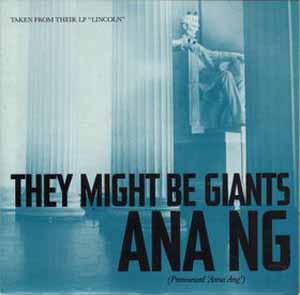I always liked this song a lot, though it’s more of a groove than song. With hair.
baby baby don’t forget we’re gonna rock till we’re soaking wet
My thing for 1950’s rockroll, as Steve puts it, goes back to the blues and forward to soul and R&B among other things. Many of these songs are in danger of disappearing, although maybe I’m wrong and they were hits again in movies that I’ve never seen. In any case, it’s good to hear them and surely there are kids who haven’t heard them. Not MY kids, they have been steeped in their rocknroll heritage.
My favorite kid rocknroll incident was about 1991, I’m driving with my sons Gene (age 8) and Matthew (6) and The Beatles’ Please Mr. Postman comes on the radio so I jack it up and sing along because it’s such a great sing along song. When it ends I turn the volume down and Matt pipes up from the back seat “John at his best.” Of course he had heard that from me, nevertheless I almost drove off the road.
My biggest thrill with kid rocknroll was singing Chinese Rocks with my son Gene and his band at a club here in Fort Collins. We nailed it.
So I thought I’d post a great blues song and a great R&B song. They play Howlin Wolf on TV commercials but they don’t play this, as good as anything he ever did:
I wouldn’t try to top that singing but for hard funk it don’t get much better than this:
TV: Dead Dogs and Gym Teachers
“Freaks and Geeks” was perhaps the most rock-ish network TV show that didn’t feature Don Kirschner. Episode number 12 of the show’s only season involved the freaks trying to get it together to drive to Detroit to see the Who. It’s always hard to get into a series in the middle, but for reference purposes here’s the 12th show in its only season. It is well worth watching them all.
Night Music: The Who, “The Song Is Over”
This is the worst song on Who’s Next, the Who’s fifth studio album and the one they were touring behind when I saw them live the only time, in Forest Hills at the tennis stadium on July 29, 1971, about a month before the album was released. The opening band that night was Patti LaBelle and the Bluebelles. Voules voux avec moi!
I bring it up because I heard Baba O’Reilly today, and was reminded just how perfect this elpee was. The Soong is Over is the worst of it, by a long shot. I can live with that, something has to come last.
Song of the Week – Ana Ng, They Might Be Giants
 IGNORED OBSCURED RESTORED
IGNORED OBSCURED RESTORED
They Might Be Giants is one of my favorite “novelty” bands, right up there with The Bonzo Dog Band. TMBG is made up of two Johns, Flansburgh and Linnell, that grew up together in Lincoln, MA. They attended Lincoln-Sudbury Regional High School, whose alumni also include Mike Gordon of Phish and comedian Paula Poundstone (not to mention my brothers-in-law).
They went their separate ways after HS, but reunited in Brooklyn post grad and began making music again. Their creative shows and clever marketing brought them to the attention of the Hoboken, NJ based indie label Bar/None (home to Yo La Tengo and The Feelies) who gave them a recording contract and released their first two albums – They Might Be Giants and Lincoln.
Those two albums and their third, Flood, produced a bunch of their best songs including “Don’t Let’s Start”, “Purple Toupee”, “They’ll Need a Crane”, “Santa’s Beard” (which my bandmates and I have played at holiday parties), “Birdhouse in Your Soul” and “Particle Man.”
My choice for the SotW is “Ana Ng.”
This song is way too much fun for a bunch of reasons. The lyrics tell the story of a guy who’s thinking about that one person that was put on this earth just for him – except that she lives on the other side of the world in Viet Nam.
My apartment looks upside down from there
Water spirals the wrong way out the sink
And her voice is a backwards record
It’s like a whirlpool, and it never ends
Then there’s the way TMBG tie in their obsession with the NY World’s Fair (the site upon which they filmed the video for their first single “Don’t Let’s Start”) with the global theme of the song and the connection to Disney’s “It’s a Small World” that debuted at said Fair.
All alone at the ’64 World’s Fair
Eighty dolls yelling “Small girl after all”
Who was at the DuPont Pavilion?
Why was the bench still warm? Who had been there?
But for me, one of the best reasons this song is so special is the playful vowel sound phonetics of the chorus:
Ana Ng and I are getting old
If you know this song you know exactly what I’m saying. If you’re hearing it for the first time you’ll pick up on it immediately. Very clever.
And how can you not love a rock band that uses an accordion as one of its primary instruments!
They’re a blast to see live too. Everyone in the audience seems to know the words to all their wacky songs, giving the concert a playful, party feel.
TMBG had further success, winning a Grammy in 2002 for the theme song they wrote for Malcolm in the Middle, “The Boss of Me.” They also wrote the theme song for Jon Stewart’s The Daily Show.
Starting around 2005 the guys have been focusing most of their energies toward recording children’s records. (One of them, Here Come The 1 2 3s, earned them a second Grammy.) If I still had small children they’d be listening to TMBG, not Barney or Raffi.
Enjoy… until next week.
Godzilla
It must have been Remnants movie night last night. Even though this kind of thing is not my normal cup of tea in flicks, I was persuaded by some new friends to see the new “Godzilla” Friday night. It wasn’t bad, actually. Not to spoil it for you, but history definitely showed us again how nature points out the folly of man.
So you get the Fu version. While the BOC version is happy and kinda poppy, Fu Manchu’s (a distant second all-time at covers to the mighty Hellas) is sluggish and menacing, like Godzilla damn well should be.
I’m drawn to a sweet singing lead guitar over slow crunchy chords like a fly to shit. I guess that pretty much sums up the Black Sabbath formula.
Oh, and the crazy bass solo during the break part.
Night Music: The Beatles, “Dear Prudence”
We had a couple of families gather together for movie night. TONIGHT. There was a lot of discussion about what we should watch, but we watched Rosemary’s Baby.
Rosemary’s Baby is a perfectly structured movie, exquisitely executed by a stellar cast blending their overactive acting skills with an overactive narrative, herded by one of cinema’s great directors, Roman Polanski.
But not overactive in terms of too many plot points. The movie is overactive reinforcing the main line of the narrative, and actually proceeds with ancient decorum. Which is brilliant, because the story is… hmmm. That would spoil it all.
My point is that Polanski doesn’t seem to care that the secret is revealed in the first third, because he knows dramatically we’re still going to want to tie all the pieces together in the “very satisfying” end. At least for Beelzebub.
But Rosemary’s Baby has had a much broader impact on the culture. I could rehash it all, but it is better fobbed off to this story at Dangerous Minds.
And the beautiful and dangerous part of this part of the story is that Mia Farrow and her sister (Prudence) visited Maharishi Mahesh Yogi and meet up with the Beatles, who wrote the song whose title Charles Manson’s associates scrawled on the wall (Helter Skelter) during their murderous spree, during which they killed Sharon Tate, Roman Polanski’s wife, in the same house (probably) that the Beatles did acid with Terry Melcher, who was for a bit Charles Manson’s producer, years before.
That is your lattice of coincidence, or a spiral of corruption. But the song of tonight is Lennon’s beautiful and challenging song directed to Prudence Farrow.
[Edited 5/24 to fix the error claiming John Lennon wrote the song “Helter Skelter” (Paul McCartney did) and implying that it was an inspiration for the Manson clan’s murders.]
Night Music: Jake Holmes, “Dazed and Confused”
I learned about this story earlier today, while reading about the band called Spirit’s copyright claim to the song Stairway to Heaven. Jake Holmes had a more compelling case in 2010 (it was the same song), went to court, and settled the case in 2012.
The backstory. Holmes wrote and recorded the song, which was released on his album The Above Ground Sound of Jake Holmes in 1967. A few months later Holmes opened for the Yardbirds at a club in Greenwich Village, and Jimmy Page added the song to their set later that year. Two years later Led Zeppelin recorded their famous version of the song, which appeared on their first album, Led Zeppelin. It was not credited to Holmes.
It certainly should have been.
In The News: Spirit, “Taurus”
I may be the only person in the world who didn’t know this song. As a kid record shopping at the SmithHaven Mall I would eye this one covetously because of the cover.
But yesterday, the band Spirit sued Led Zeppelin for copyright infringement. Here’s the song:
Yep, it sounds like Stairway, and there are millions of Youtube videos pointing that out. What seems to be happening here is that Jimmy Page has remastered the whole Led Zeppelin catalog and Spirit’s suit effectively holds that project hostage until it is resolved.
My first though was the Statue of Limitations. Surely that has expired for a song released in the 70s. It turns out that the statute of limitations for copyright infringement is three years, but Spirit could, if it won the suit, collect royalties for new issues of the song over the last three years. Stairway to Heaven, by the way, has earned on average $13M per year for the last 40 years. I’m sure some years were better than others, but that’s a lot of dough.
An attorney named Oliver Herzfeld tells the story over at Forbes, with his opinion about how it’s going to turn out. Looks like Randy California may get as wealthy as Willie Dixon. But what were these guys doing the last 40 years?

